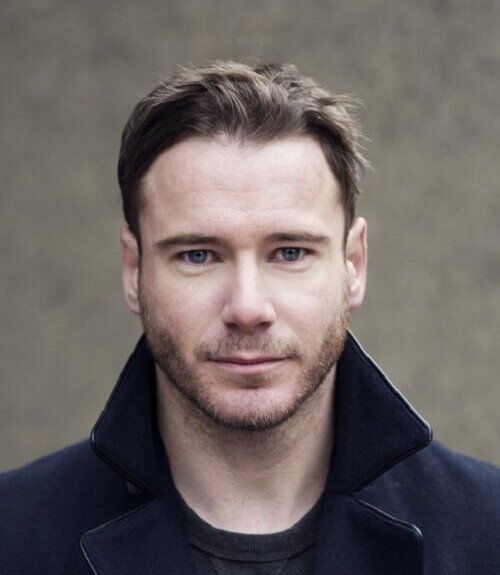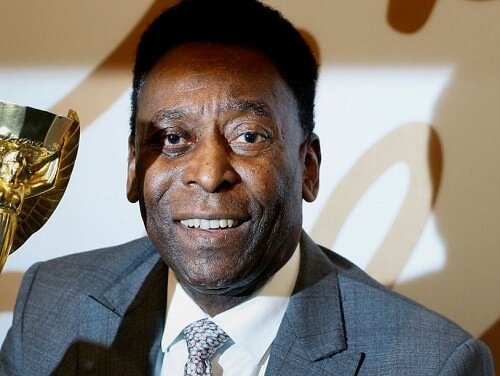In this article, here is the full details of Larry Elder about wiki, biography, date of birth, birthplace, zodiac sign, nationality, hometown, age, height, weight, father, mother, family, girlfriend, wife, relationship status, children, profession, education, career, net worth, facts, Wikipedia, and many more.

Larry Elder, born on April 27, 1952, in Los Angeles, California, is an American attorney, author, and media personality best known for his conservative viewpoints and outspoken commentary on politics and social issues. With a career spanning several decades, Elder gained national recognition as a talk radio host, political commentator, and most recently, as a candidate in California’s 2021 gubernatorial recall election.
Early Life and Education
Laurence Allen “Larry” Elder was born into a working-class family in South Central Los Angeles. His father, Randolph Elder, was a former U.S. Marine and restaurant owner who instilled strong values of hard work and self-reliance in his children. His mother, Viola Conley Elder, was a clerical worker who emphasized education. Growing up in a predominantly Black neighborhood, Elder often spoke of the challenges he faced, including the impact of racism, but he also credited his parents for teaching him that personal responsibility and effort were key to overcoming obstacles.
Elder attended Crenshaw High School and excelled academically, which led him to pursue higher education. He earned a Bachelor of Arts degree in Political Science from Brown University in 1974 and later obtained a Juris Doctor degree from the University of Michigan Law School in 1977. After law school, Elder worked briefly at a law firm before pivoting to other ventures.
Early Career and Legal Work
After a few years in corporate law, Elder founded Laurence A. Elder and Associates, a legal executive search firm, in Cleveland, Ohio, where he lived for several years. However, it wasn’t long before Elder began exploring other opportunities, including media and writing, where his passion for public policy and conservative ideals began to take shape.
Rise to Fame: Radio and Media Career
Elder’s breakthrough came when he transitioned into radio broadcasting in the early 1990s. He became the host of The Larry Elder Show, a popular talk radio program that aired initially on KABC in Los Angeles. His show, known for its direct and often provocative style, attracted a loyal audience and allowed Elder to voice his conservative views on topics such as government regulation, social welfare, and race relations.
Elder’s willingness to challenge liberal orthodoxies, particularly regarding Black communities and politics, earned him both admiration and criticism. His sharp critiques of affirmative action, support for school choice, and his belief in limited government often put him at odds with many civil rights advocates. Nevertheless, Elder became a prominent figure in conservative circles, garnering national attention for his commentary on race, crime, and politics.
In addition to radio, Elder made frequent television appearances on shows such as The O’Reilly Factor and Hannity on Fox News, and other political roundtables, further solidifying his reputation as a staunch conservative voice. Elder has also written for various publications, including National Review and Townhall, and authored several books, including “The 10 Things You Can’t Say in America” and “Showdown: Confronting Bias, Lies, and the Special Interests That Divide America.”
Political Views and Controversial Opinions
Larry Elder’s political philosophy is rooted in the principles of limited government, free markets, and personal responsibility. He has been an outspoken critic of what he views as government overreach and has called for reforms in taxation, education, and healthcare to reduce government intervention in individuals’ lives.
Elder has also been a controversial figure within discussions on race. As a Black conservative, he has often criticized the mainstream civil rights movement, arguing that systemic racism is overstated and that individual effort, rather than governmental programs, is the key to success for marginalized communities. He has repeatedly stated that the absence of fathers in Black households is a far greater challenge than racism itself. His views on law enforcement and policing—particularly his opposition to the “defund the police” movement and his defense of law enforcement amid accusations of systemic racism—have further polarized audiences.
Candidacy in California’s Gubernatorial Recall Election (2021)
In 2021, Elder gained significant national attention when he entered the California gubernatorial recall election, seeking to unseat incumbent Governor Gavin Newsom. Elder quickly became the leading Republican candidate in a crowded field, leveraging his media presence and name recognition to appeal to California voters frustrated with the state’s policies on taxes, crime, homelessness, and COVID-19 restrictions.
During his campaign, Elder advocated for school choice, lower taxes, reducing homelessness, and lifting COVID-19 mandates, positioning himself as a reform candidate who could turn around California’s perceived decline. His platform resonated with conservative voters and some independents, but he also faced strong opposition from Democratic voters and the state’s liberal-leaning electorate.
Despite losing the recall election, Elder’s campaign elevated his status within the Republican Party and the conservative movement. Many speculated that his political ambitions would not end with the recall, as he hinted at future political runs and continued his public advocacy for conservative causes.
Post-Election and Legacy
After the recall election, Larry Elder returned to his media career and continued to be a prominent figure in conservative political discourse. Through his radio show, podcast, and public appearances, Elder remained a staunch critic of progressive policies, and many have viewed him as a potential candidate for future political offices, both in California and nationally.
Elder’s impact on American conservatism is significant. As one of the few prominent Black conservatives in media and politics, he has shaped debates around race, economics, and government policy. His views, while polarizing, have sparked critical discussions about the role of government in addressing societal challenges, and his contributions to the media landscape have been influential in shaping conservative thought.
Personal Life
Larry Elder has kept much of his personal life private, but it is known that he has been married once and is currently unmarried. Elder has also spoken openly about his relationship with his father, whose strict upbringing and personal values were a major influence on his views of personal responsibility and work ethic. Elder has credited his father as his role model and has written extensively about their relationship in his books and public speeches.
Conclusion
Larry Elder’s life story is one of determination, intellectual rigor, and controversy. From his beginnings in South Central Los Angeles to becoming one of the most recognizable conservative voices in the United States, Elder’s career has been marked by a commitment to challenging prevailing ideologies and advocating for individual empowerment. Whether as a radio host, author, or political candidate, Elder has left an indelible mark on American conservatism and continues to be a key figure in the national conversation on politics and race.
Stay connected with the wikimavani to know more about other trending personalities the wiki, biography, date of birth, birthplace, zodiac sign, nationality, hometown, age, height, weight, father, mother, family, boyfriend, husband, girlfriend, wife, relationship status, children, profession, education, career, net worth, facts, Wikipedia, and many more.









